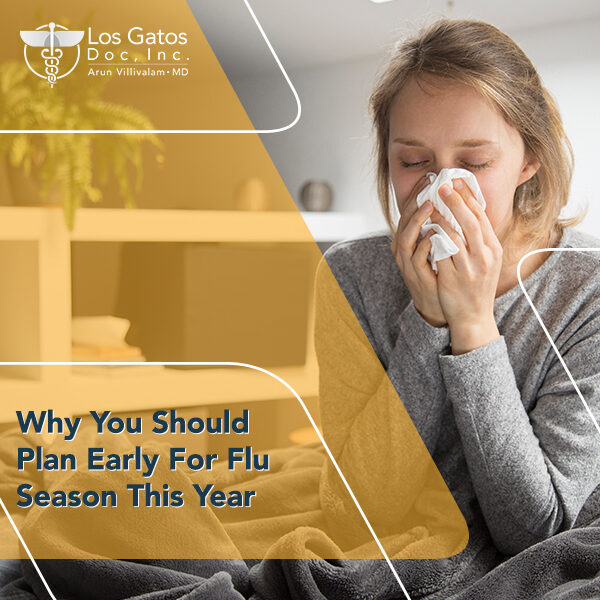Why You Should Plan Early For Flu Season This Year
We are still in the last few days of summer. We know. But it’s also true that the flu season is just around the corner.
So, it’s time to get your flu facts right. Learn more about this year’s flu vaccine recommendations in our article.
Dr. Arun Villivalam suggests that it’s not too early to get your flu shot for the season this year. (Read about the CDC’s guidelines for the 2022–2023 flu season here).
How early can you get the flu shot?
You should take the Flu vaccination as early as the end of October as per the recommendations by the CDC (Centers for Disease Control and Prevention) and ACIP (Advisory Committee on Immunization Practices).
When Is The Best Time To Get A Flu Shot?
For 2022, the CDC doesn’t suggest vaccinating earlier than September. Vaccinating earlier this year, for example, in July, or August may lead to reduced protection against influenza later in the season, particularly for older adults.
September and October are good times to get vaccinated for most people who need only one dose in the flu season.
Ideally, it’s recommended to get vaccinated by the end of October. It’s also important to know that vaccination after October can still provide some protection during the peak of flu season.
Early vaccination, i.e. during July and August, can be considered for women in the third trimester of pregnancy, to protect their infants during the first months of life as they’re too young to be vaccinated.
We can also consider early vaccination for children who need only one dose. Most children will only need one dose of flu vaccine, anyway.
Some children need 2 doses of flu vaccine. They should receive their first dose as soon as possible after the vaccine becomes available at the clinic to allow the second dose, (which must be administered at least 4 weeks later) preferably to be received by the end of October.
All children 6 months and older should get a flu vaccine. Your child’s doctor can tell you if your child needs two doses of flu vaccine.
Dr. V recommends you don’t wait until people in your neighborhood, schools, colleges, and workplaces fall sick to get your flu vaccination.
Can You Take The Flu Vaccine And COVID-19 Vaccine?
Yes, you can get the flu vaccine and COVID-19 vaccine or COVID-19 booster shot at the same time if you are eligible. Even children who are eligible for COVID-19 vaccination can get the COVID-19 vaccine and flu vaccine at the same visit.
If you haven’t gotten your currently recommended doses of COVID-19 vaccine, get them at the earliest, and ideally get your flu vaccine by the end of October. Even though you can get both vaccines at the same time, don’t delay the COVID-19 vaccine or COVID-19 booster shot to get them both at the same visit.
How Late Can You Get The Flu Shot?
It’s never too late to get your flu shot during the flu season.
While we recommend you get your flu shot by the end of October, getting vaccinated later is still beneficial. It’s better than never.
Should You Take The Flu Vaccine Even After Getting The Flu?
You can still get the flu again after one attack because there are multiple strains of the virus.
The flu vaccine protects against multiple strains of the flu. The CDC predicts which strains of the virus will be the strongest for the year and accordingly formulates the flu vaccine each year. You should get a flu shot even after getting the flu so that it prevents a future attack from another strain of the virus.
Get Your Flu Vaccine And Help Our Community Stay Healthy
A flu shot is the most effective way to protect you, your family, and the entire community from catching the flu.
Getting your flu shot can seem unnecessary, especially when you’re healthy. But the flu can be serious with more people getting hospitalized for the flu. And no, the flu vaccine cannot give you the flu as it contains killed viruses. Flu vaccine prevents millions of diseases & flu-related doctor’s visits each year.
Why risk it?
It pays to always be prepared.
Get your flu vaccine and protect yourself and our community.
(Disclaimer: We routinely draw upon public health resources to inform our write-ups. Information in this article may be drawn up from multiple public health sources, including:
- Centers for Disease Control & Prevention
- Medline Plus
- National Institutes of Health
- American Medical Association
- American Association of Family Physicians
- Mayo Clinic
- Family Doctor






